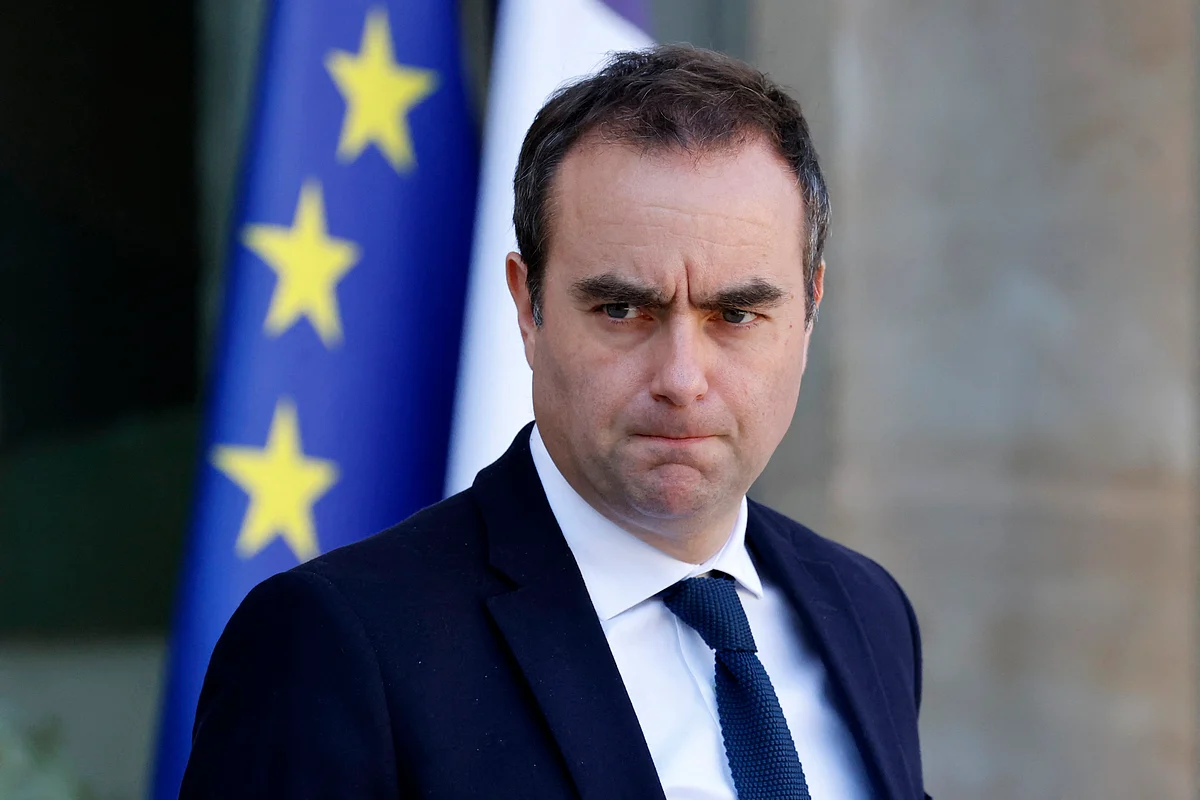
New France PM Sebastien Lecornu To Take Office Amid Protests
France's new Prime Minister Sebastien Lecornu takes office on Wednesday facing a day of protests that are expected to see transport, education and other services suffer disruptions in a show of grassroots anger against President Emmanuel Macron.
The protests, led by a loose left-wing collective called "Block Everything", could be a baptism of fire for Lecornu, 39, a close ally of Macron who has served the last three years as defence minister.
Recommended For YouMacron named Lecornu as prime minister late Tuesday, a day after his predecessor Francois Bayrou lost a confidence vote in parliament, forcing him and his government to resign.
Bayrou stumbled over his attempt to implement a package of austerity measures aimed at reducing France's debt. It remains unclear what compromises Lecornu has in mind to push the budget through.
The formal handover of power between Bayrou and Lecornu is due to take place on Wednesday at midday.
"The president is convinced that (under Lecornu) an agreement between the political forces is possible, while respecting the convictions of everyone," said the French presidency.
Stay up to date with the latest news. Follow KT on WhatsApp Channels.
Macron, who has been leading diplomatic efforts internationally to end Russia's war on Ukraine, had faced one of the most critical domestic decisions of his presidency over who to appoint as premier.
Lecornu is seen as a discreet but highly skilled operator who, crucially for Macron, himself harbours no ambition of becoming president.
He had been tipped to take the premier job in December but in the end Bayrou reportedly strong-armed the president into giving him a chance.
He becomes the seventh prime minister since Macron took office in 2017, the fifth since his second mandate began in 2022 and the third within the space of the year.
Lecornu faces the immense challenge of building bridges across parliament and ensure he does not suffer the same fate as Bayrou, who lasted just nine months, with the aim of serving Macron until his presidency ends in 2027.
Lecornu vowed on X that his government would work for "political and institutional stability for the unity of the country".
'Zero tolerance'
The full extent of Wednesday's actions has been difficult to gauge because of the minimal involvement of trade unions, most of whom are planning their own day of widespread strikes and protests on September 18.
But the call by mostly left-wing groups to "block everything" has sparked enough concern among the authorities for 80,000 police to be deployed across France.
Interior Minister Bruno Retailleau has warned demonstrators that there would be "zero tolerance" concerning violent actions or blockages of key sites.
Police have said that they are keeping a close eye on "points of vital importance" for economic life, such as oil refineries.
Retailleau said France needed a new government quickly "to embody the authority" of the state, accusing the hard-left France Unbowed (LFI) party and its firebrand leader Jean-Luc Melenchon of seeking to foster "a climate of insurrection".
While high-speed trains are set to run normally, as are most Paris metro trains, regional and suburban rail services as well as airports across the country are expected to be disrupted, including Paris's main airports Charles-de-Gaulle and Orly.
The decentralised nature of Wednesday's protests, set to flare up even in the countryside and small towns, is reminiscent of the 2018 Yellow Vest movement that, without a clear political leadership, became a major test for Macron during his first term in office.
But political observers say the current movement is more identifiably left-wing than the Yellow Vests, and includes more young people with an intellectual background.
Paris police chief Laurent Nunez said he suspected the "radical left" was running the protests, organising "spectacular actions", but without the backing of "civil society".
As far as they have been identified, demonstrator demands range from dropping Bayrou's idea to abolish two annual bank holidays, to cutting medical costs for wage earners and implementing more generous sick leave conditions.
Bayrou had insisted 44 billion euros ($52 billion) of spending cuts were needed to rein in France's debt and stabilise the public finances.

Legal Disclaimer:
MENAFN provides the
information “as is” without warranty of any kind. We do not accept
any responsibility or liability for the accuracy, content, images,
videos, licenses, completeness, legality, or reliability of the information
contained in this article. If you have any complaints or copyright
issues related to this article, kindly contact the provider above.


















Comments
No comment